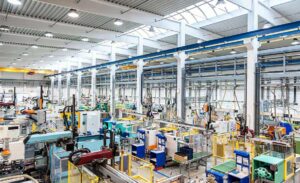Recording of the event: Slovak Language in the Era of Large Language Models (with support from the Leonardo supercomputer)
On June 11, 2025, a joint webinar on language modeling was held, organized by the National Competence Centres for HPC in Slovakia and Italy. The discussion focused on the challenges and solutions related to using large language models (LLMs) for less-resourced languages such as Slovak.
Participants were introduced to several innovative approaches aimed at reducing linguistic inequality in the era of artificial intelligence:
- Generation of bilingual datasets: We used a database of professionally edited Slovak books and the LLaMA 3.3 70B Instruct model to translate between Slovak and English, resulting in datasets for training translation models and improving machine-translated Slovak.
- Summarization of scientific texts: Using the Gemini Flash Experimental model and the PLOS database, we generated Slovak summaries of scientific articles, contributing to the development of domain-specific language in large language models (LLMs).
- Enhancing cultural context: We are preparing a dataset based on Slovak sources aimed at improving the models’ ability to understand culturally specific topics and local context.
The webinar was hosted by Marek Dobeš, with Radovan Garabík and Peter Bednár as co-authors of the project. The research is conducted using high-performance computing infrastructure – the Slovak supercomputer Devana and the Italian supercomputer Leonardo, operated by the Cineca supercomputing center in Italy.
The case study highlights the potential for applying these methodologies to other low-resource languages. We believe that the insights gained from this project can inspire experts around the world.
 BeeGFS in Practice — Parallel File Systems for HPC, AI and Data-Intensive Workloads 6 Feb - This webinar introduces BeeGFS, a leading parallel file system designed to support demanding HPC, AI, and data-intensive workloads. Experts from ThinkParQ will explain how parallel file systems work, how BeeGFS is architected, and how it is used in practice across academic, research, and industrial environments.
BeeGFS in Practice — Parallel File Systems for HPC, AI and Data-Intensive Workloads 6 Feb - This webinar introduces BeeGFS, a leading parallel file system designed to support demanding HPC, AI, and data-intensive workloads. Experts from ThinkParQ will explain how parallel file systems work, how BeeGFS is architected, and how it is used in practice across academic, research, and industrial environments. When a production line knows what will happen in 10 minutes 5 Feb - Every disruption on a production line creates stress. Machines stop, people wait, production slows down, and decisions must be made under pressure. In the food industry—especially in the production of filled pasta products, where the process follows a strictly sequential set of technological steps—one unexpected issue at the end of the line can bring the entire production flow to a halt. But what if the production line could warn in advance that a problem will occur in a few minutes? Or help decide, already during a shift, whether it still makes sense to plan packaging later the same day? These were exactly the questions that stood at the beginning of a research collaboration that brought together industrial data, artificial intelligence, and supercomputing power.
When a production line knows what will happen in 10 minutes 5 Feb - Every disruption on a production line creates stress. Machines stop, people wait, production slows down, and decisions must be made under pressure. In the food industry—especially in the production of filled pasta products, where the process follows a strictly sequential set of technological steps—one unexpected issue at the end of the line can bring the entire production flow to a halt. But what if the production line could warn in advance that a problem will occur in a few minutes? Or help decide, already during a shift, whether it still makes sense to plan packaging later the same day? These were exactly the questions that stood at the beginning of a research collaboration that brought together industrial data, artificial intelligence, and supercomputing power. Who Owns AI Inside an Organisation? — Operational Responsibility 5 Feb - This webinar focuses on how organisations can define clear operational responsibility and ownership of AI systems in a proportionate and workable way. Drawing on hands-on experience in data protection, AI governance, and compliance, Petra Fernandes will explore governance approaches that work in practice for both SMEs and larger organisations. The session will highlight internal processes that help organisations stay in control of their AI systems over time, without creating unnecessary administrative burden.
Who Owns AI Inside an Organisation? — Operational Responsibility 5 Feb - This webinar focuses on how organisations can define clear operational responsibility and ownership of AI systems in a proportionate and workable way. Drawing on hands-on experience in data protection, AI governance, and compliance, Petra Fernandes will explore governance approaches that work in practice for both SMEs and larger organisations. The session will highlight internal processes that help organisations stay in control of their AI systems over time, without creating unnecessary administrative burden.

